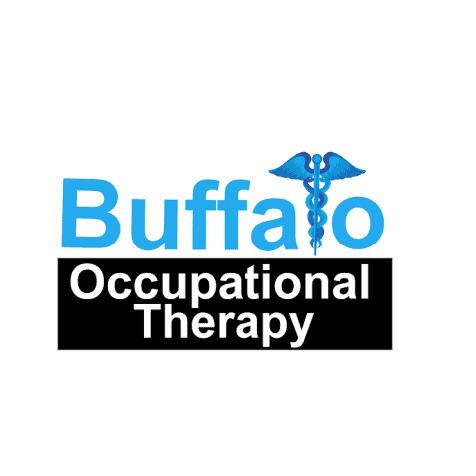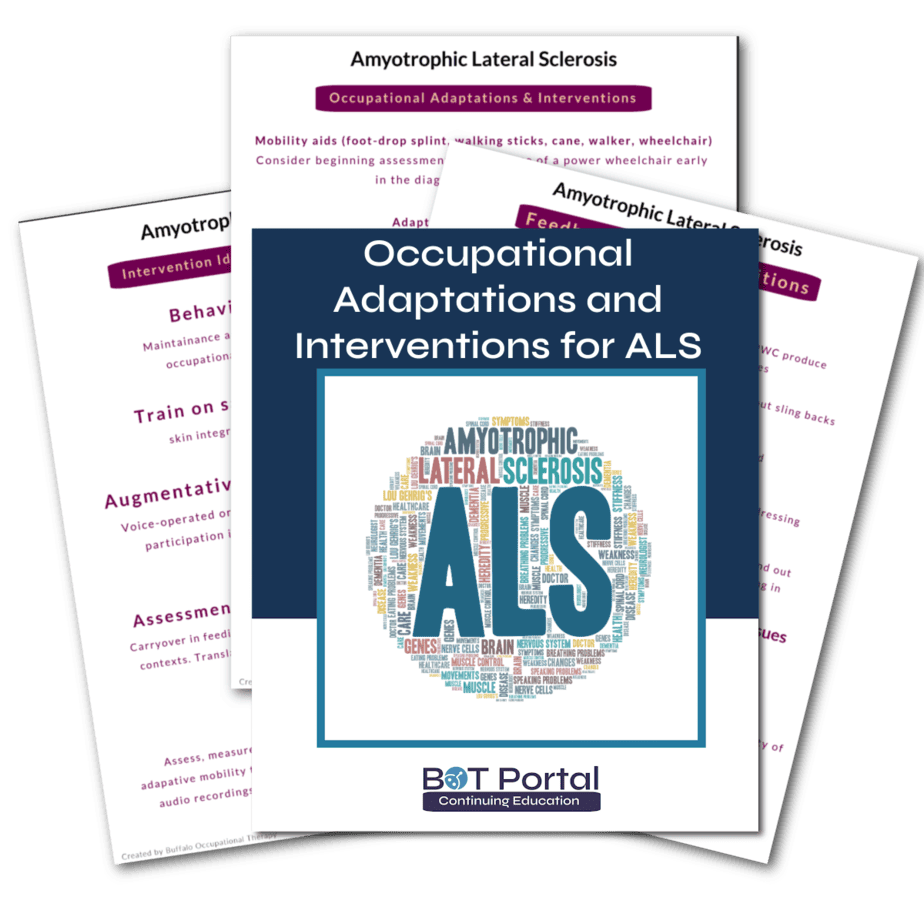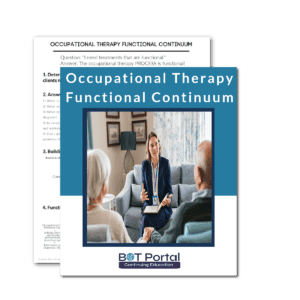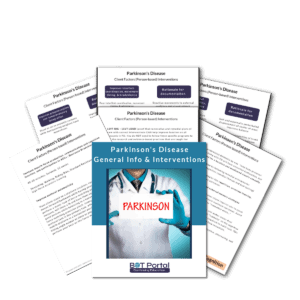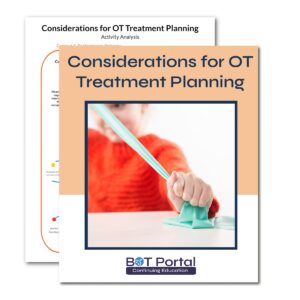Description
Occupational Adaptations and Interventions for ALS
Our multi-page resource delves into the crucial topic of occupational adaptations across the continuum of amyotrophic lateral sclerosis (ALS). ALS, commonly known as Lou Gehrig’s disease, is a progressive neurodegenerative disorder that affects nerve cells in the brain and spinal cord, leading to muscle weakness, paralysis, and ultimately, respiratory failure.
Individuals with ALS experience a wide range of physical, cognitive, and psychosocial challenges that impact their ability to engage in meaningful activities of daily living. As the disease progresses, occupational therapy interventions become increasingly important in helping individuals maintain their independence, maximize their quality of life, and adapt to changing abilities.
Our resource provides comprehensive coverage of occupational adaptations tailored to the unique needs and abilities of individuals with ALS at different stages of the disease. From early-stage interventions aimed at conserving energy and promoting independence to late-stage adaptations focusing on compensatory techniques and assistive technology, occupational therapy practitioners play a pivotal role in supporting individuals and their families throughout the disease trajectory.
In addition to practical strategies and recommendations, our resource offers an exclusive illustration as a downloadable resource. This visual aid highlights key occupational adaptations and assistive devices commonly used by individuals with ALS, serving as a valuable tool for both practitioners and individuals affected by the disease. By enhancing understanding and facilitating implementation, the illustration supports holistic and patient-centered care approaches.
Occupational therapy practitioners are uniquely positioned to address the diverse needs of individuals with ALS and optimize their occupational performance across the continuum of care. Recommendations for occupational therapy practitioners include:
1. Conducting comprehensive assessments to identify individuals’ strengths, limitations, and goals at each stage of the disease.
2. Collaborating with individuals with ALS and their caregivers to develop personalized intervention plans that address functional priorities and promote independence.
3. Providing education and training on energy conservation techniques, adaptive equipment, and assistive technology to enhance individuals’ ability to engage in activities of daily living.
4. Monitoring disease progression and adjusting intervention strategies accordingly to ensure continued support and optimal outcomes.
5. Advocating for access to resources and services that facilitate individuals’ participation in meaningful activities and promote their overall well-being.
By integrating evidence-based practices and a client-centered approach, occupational therapy practitioners can make a meaningful difference in the lives of individuals with ALS, empowering them to live life to the fullest despite the challenges posed by their condition. Through ongoing education, collaboration, and support, practitioners can help individuals and their families navigate the complexities of ALS with dignity and resilience.
What is included?
- Intervention ideas for health management
- Occupational adaptations and interventions
- Feedback and Life Transitions
Some other helpful links:
Check out BOT Portal: Resource Site for Occupational Therapy Students and Practitioners
Physical Interventions for Amyotrophic Lateral Sclerosis ALS
